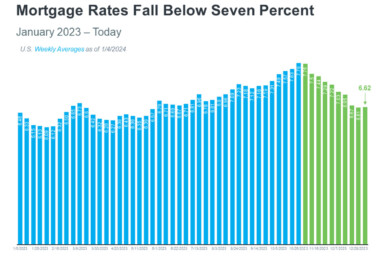This Is Not 2008 (Why a Recession Won’t Cause a Housing Market Crash on Long Island)

While some have voiced the view that the negative economic effects caused by the worldwide COVID-19 pandemic will bring about a recession in the U.S., it’s important to understand that any such recession will not be a simple replay of the Great Recession of 2008, especially in respect to its impact on home prices. While the duration and severity of any future recession caused by COVID-19 cannot now be known, it’s clear that the housing market – nationally and here on Long Island — is in a much better position to withstand an economic downturn than it was in 2008. Here’s why:
Mortgage standards are much healthier today than in 2008
The ease of mortgage qualification played a key role in the housing bubble that was the primary cause of the Great Recession. The Mortgage Credit Availability Index—indicating the availability of mortgage credit—skyrocketed during that time, meaning it was hard not to get a mortgage. But buyers who got burned in the past can breathe a sigh of relief. Today’s mortgage standards are not only higher—but even stricter than before the bubble. The bottom line: it’s hard to get a mortgage today—and that’s a solid layer of protection for the housing market.
Today’s housing market is not overheated
In the six years leading up to the Great Recession, home prices rose rapidly, with appreciation rates ranging from 6.5 percent to a sizzling 12.5 percent per year. Today, housing prices are rising, but are appreciating at far more modest rates. In the past six years, home price appreciation has ranged from just 4.4 to 6.4 percent. While that’s a bit above the normal appreciation rate of 3.3 percent, it’s no bubble.
Homeowners own far more equity in their homes than in 2008
In the years leading up to the Great Recession of 2008, homeowners were encouraged to extract cash from their properties by taking out home equity loans. Between 2005 and 2007, more than $800 billion was extracted this way. Unfortunately, many homeowners who took out such loans found themselves “under water” after home values crashed, resulting in a wave of foreclosures and distressed property sales (which further depressed the housing market). Today, however, thanks to the gradual appreciation of real estate values and the more responsible behavior of the mortgage industry, homeowners – over the past three years — have cashed out a fraction ($232 billion) of what they extracted in 2005-2007. The result is a healthier, more stable market where the risk of foreclosures and depressed property values is much lower than in 2008.
In 2008, there was a housing surplus. Today, there’s a shortage
In the past decade, demand for houses has outstripped the building industry’s ability to create them, resulting in a housing shortage nationally, and especially here on Long Island. As today’s generation of young people seeks single-family homes to accommodate their growing families, this demand will continue to be strong. While a severe recession could interfere with the ability of aspiring homeowners to acquire new homes, resulting in a drop in demand, the fundamentals of supply and demand in today’s housing market indicate that home values will hold steady in all but the absolute worst-case economic scenarios.
Team Rita’s advice to you
The COVID-19 pandemic is a scary situation and it’s already changing the way we live our lives. But we believe that this crisis will pass, that the fundamentals of the housing market on Long Island will remain strong, and that a house will remain an excellent investment now and in the future. Team Rita would be honored to serve as your guide toward securing that excellent investment.





